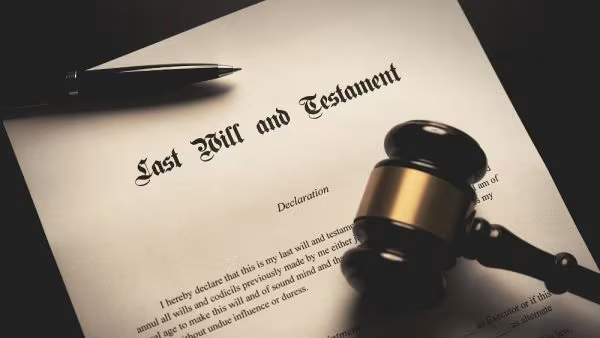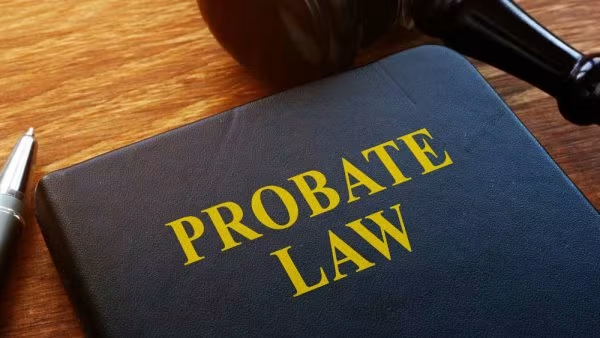Estate Administration
When a loved one passes away, it can be a difficult time filled with grief and loss. As if dealing with the emotional aspects of the situation weren’t enough, there are also legal matters to attend to. Estate administration is the process of managing and distributing a deceased person’s assets and liabilities according to their will or the laws of intestacy. This comprehensive guide will provide you with an overview of estate administration in South Australia, explaining the key elements, legal process, rights and obligations, common issues, and solutions.
What is Estate Administration?
Estate administration refers to the legal process of managing and distributing a deceased person’s assets and liabilities. It involves locating and valuing the assets, paying any outstanding debts and taxes, and distributing the remaining assets to the beneficiaries.
In South Australia, estate administration can be carried out by the executor named in the deceased person’s will or by an administrator appointed by the Supreme Court if there is no valid will or appointed executor.
The main purpose of estate administration is to ensure that the deceased person’s final wishes are respected and that their assets are transferred to the intended beneficiaries in a fair and efficient manner.
Key Elements/Types of Estate Administration
There are several key elements and types of estate administration that are important to understand:
1. Executor
The executor is the person named in the deceased person’s will who is responsible for administering the estate. Their role includes gathering and valuing the assets, paying debts and taxes, and distributing the remaining assets to the beneficiaries.
If the deceased person did not name an executor in their will, or if the named executor is unable or unwilling to act, the court may appoint an administrator to carry out the estate administration.
2. Intestate Succession
If a person dies without a valid will, they are said to have died intestate. In this case, the estate will be distributed according to the laws of intestacy. The laws of intestacy in South Australia determine who the beneficiaries are and how the estate will be divided.
Intestate succession can be more complex and time-consuming compared to when there is a valid will, as there may be disputes among potential beneficiaries, and the court may need to make decisions regarding the distribution of the estate.
3. Small Estates
In South Australia, if the value of the deceased person’s estate is below a certain threshold (currently $50,000), it may qualify as a small estate. Small estates can be administered through a simplified process called summary administration, which is less formal and less costly compared to regular estate administration.
However, even if an estate is considered small, it is still important to seek legal advice to ensure that all necessary steps are followed correctly.
The Legal Process in South Australia
Administering an estate in South Australia involves several legal steps and requirements. The process typically includes the following:
1. Obtain Death Certificate
The first step is to obtain the death certificate from the Registry of Births, Deaths, and Marriages. The death certificate is required to prove the person’s passing and is necessary for various legal and administrative purposes.
2. Identify Executor or Administrator
If there is a valid will, the executor named in the will should be identified. If there is no will or no appointed executor, the court may need to appoint an administrator to administer the estate.
3. Apply for Grant of Probate or Letters of Administration
If there is a valid will, the executor may need to apply for a grant of probate from the Supreme Court. A grant of probate is a legal document that confirms the validity of the will and authorises the executor to administer the estate.
If there is no will or no appointed executor, an administrator may need to apply for letters of administration from the Supreme Court. Letters of administration are a legal document that authorises the administrator to administer the estate.
4. Collect and Value Assets
The executor or administrator must identify, locate, and value all the assets of the deceased person. This includes bank accounts, real estate, investments, personal belongings, and any other assets of value.
5. Pay Debts and Taxes
Before distributing the assets to the beneficiaries, the executor or administrator must pay any outstanding debts and taxes owed by the deceased person. This may include funeral expenses, outstanding bills, and income tax liabilities.
6. Distribute Assets to Beneficiaries
Once all the debts and taxes have been paid, the remaining assets can be distributed to the beneficiaries according to the terms of the will or the laws of intestacy.
It is important to note that the estate administration process can vary depending on the complexity of the estate and the specific circumstances. Seeking legal advice from an experienced estate administration lawyer can help ensure that all legal requirements are met and that the process is carried out effectively.
Your Rights and Obligations
As an executor or administrator of an estate in South Australia, you have certain rights and obligations:
1. Right to Be Paid
As an executor or administrator, you have the right to be paid for your services. The amount of compensation can vary depending on the complexity of the estate and the work involved. It is important to discuss this matter with the beneficiaries and seek their agreement before claiming any fees.
2. Duty of Care and Loyalty
As an executor or administrator, you have a duty of care and loyalty to the beneficiaries of the estate. This means that you must act in their best interests, avoid conflicts of interest, and make decisions that are fair and reasonable.
3. Timely Administration
As an executor or administrator, you have an obligation to administer the estate in a timely manner. This includes promptly collecting and valuing the assets, paying debts and taxes, and distributing the assets to the beneficiaries.
4. Proper Record-Keeping
As an executor or administrator, you have an obligation to keep accurate and complete records of all financial transactions and communications related to the estate. This is important for transparency and accountability.
It is important to note that the role of an executor or administrator can be complex and involve legal and financial responsibilities. Seeking legal advice from an experienced estate administration lawyer can help ensure that you understand your rights and obligations and fulfill them properly.
Common Issues and Solutions
Administering an estate can sometimes be challenging, and various issues may arise. Here are some common issues and their potential solutions:
1. Disputes Among Beneficiaries
Disputes among beneficiaries can delay the estate administration process and lead to additional costs. Mediation or negotiation can be effective ways to resolve disputes, and if necessary, seeking legal advice and involving the court may be required.
2. Insufficient Funds to Pay Debts
If the estate does not have sufficient funds to pay all the debts, the executor or administrator should prioritise the payment of debts in accordance with the law. It may be necessary to sell some assets to cover the debts.
3. Missing or Undisclosed Assets
In some cases, assets may be missing or undisclosed, which can complicate the estate administration process. Conducting thorough searches, reviewing financial records, and seeking professional assistance can help identify and locate any missing or undisclosed assets.
4. Taxation Issues
Estate administration may involve various tax considerations, such as capital gains tax and income tax. Seeking advice from a tax professional or an estate administration lawyer can help ensure compliance with tax laws and minimise tax liabilities.
It is important to address any issues that arise during the estate administration process promptly and seek professional advice when necessary. An experienced estate administration lawyer can provide guidance and assistance in resolving these issues effectively.
Why Choose Wright Street Lawyers
When it comes to estate administration in Adelaide, choosing the right legal representation is crucial. At Wright Street Lawyers, we offer the following advantages:
1. Experience
Our team of experienced estate administration lawyers has a deep understanding of South Australian law and the complexities of estate administration. We have successfully assisted numerous clients in administering estates of various sises and complexities.
2. Personalised Service
We understand that estate administration is a sensitive and personal matter. We provide personalised service, taking the time to understand your unique circumstances and guide you through the process with care and compassion.
3. client-focused Advice
Our estate administration lawyers are well-versed in the legal requirements and procedures involved in estate administration. We provide client-focused advice and practical solutions to ensure that the process is carried out smoothly and efficiently.
4. Cost-Effective Solutions
We strive to provide cost-effective solutions to our clients. We offer transparent pricing and work diligently to minimise unnecessary costs and expenses throughout the estate administration process.
When it comes to estate administration in Adelaide, you can trust Wright Street Lawyers to provide you with the professional legal representation you need. Contact us today for a confidential consultation.
FAQs
An executor is the person named in the deceased person’s will who is responsible for administering the estate. Their role includes gathering and valuing the assets, paying debts and taxes, and distributing the remaining assets to the beneficiaries.
If there is no valid will, the estate will be distributed according to the laws of intestacy. The laws of intestacy in South Australia determine who the beneficiaries are and how the estate will be divided.
If the value of the deceased person’s estate is below a certain threshold (currently $50,000), it may qualify as a small estate. Small estates can be administered through a simplified process called summary administration, which is less formal and less costly compared to regular estate administration.
Get client-focused Legal Help Today
Contact Wright Street Lawyers for a confidential consultation




